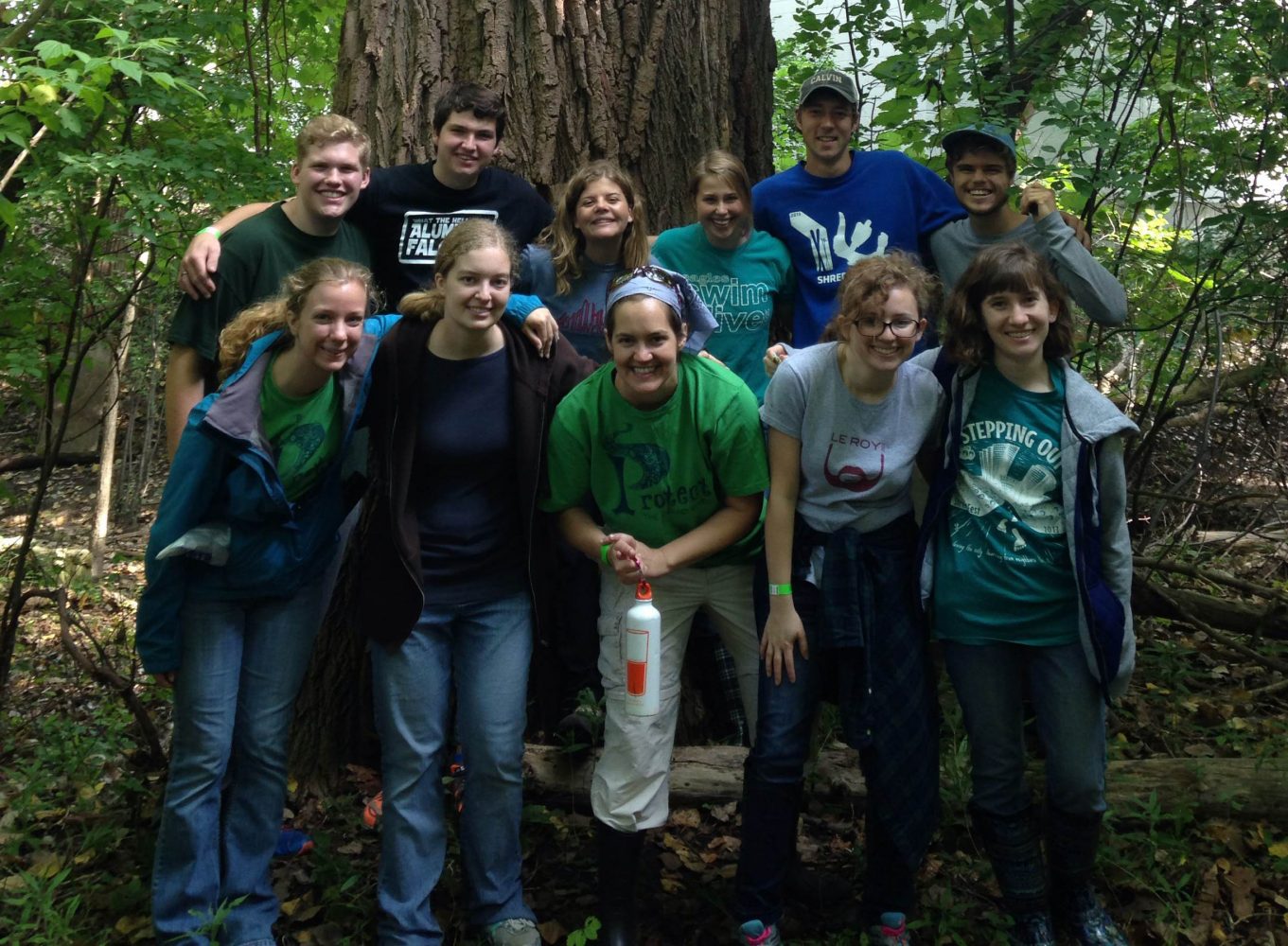Plaster Creek Stewards, a collaboration of Calvin faculty, staff, and students, recently received a $1.1 million grant from the Michigan Department of Environmental Quality (MDEQ). This grant will fund student research opportunities, increase educational outreach, and help develop a neighborhood initiative to increase community involvement in restoring the Plaster Creek watershed. Beginning this March, the grant will sustain the Plaster Creek Stewards for two years.
Plaster Creek Stewards, led by biology professor Dave Warners, Director of Community Engagement Gail Heffer, and Project Manager Mike Ryskamp, is Calvin College’s effort to engage the local community in educating and actively restoring the Plaster Creek watershed.
“A watershed is an area of land that drains to a common point,” explained Heffner. “So when it rains or snows on a landscape, eventually when it melts it will all flow over the topography [of the landscape] and go to the lowest point. It always ends up in some kind of a creek, which drains to a river and so on.”
This becomes a problem when the stream carries more than water. The MDEQ has determined that the Plaster Creek watershed includes high levels of E. Coli bacteria, nutrient pollution from lawn fertilizers, pesticides from treated farm fields and thermal pollution from water running off of warm roadways and parking lots.
“[Plaster Creek] watershed is in very bad shape,” warned Heffner. “We now know that it has been getting worse for about 100 years, and it’s mostly because it has been neglected; people just don’t pay attention.”
Plaster Creek runs over 58 square miles, beginning near farm fields south of Calvin College, then flowing north through wealthy to middle-class suburbs like Caledonia, before hitting industrial zones and Calvin’s campus. The lowest point of the watershed, where the effects of the pollution are most intense, lands in low-income housing areas.
“There are environmental justice issues that are part of this watershed, like most watersheds,” said Heffner. “It’s low-income people that are often at the downstream sections of a watershed.”
The Plaster Creek Stewards initiative recognizes these problems and attempts to combat them, conducting social and biological research such as taking public surveys and testing water quality of the creek. On-the-ground restoration is another aspect of the Stewards’ work, where they install native-plant rain gardens and bioswales to help filter dirty water before it enters the watershed.
In addition to these projects, the Stewards host events to educate the community on what a watershed is, how they can better care for it and how they can participate in restoration projects. Their next event is open to the public and will take place Saturday, October 11. Students, faculty, and community members of all ages will meet at the Bunker Interpretive Center at 9 a.m. to learn about the Plaster Creek watershed and what the Plaster Creek Stewards have been doing to restore it. Then they will take part in a restoration project, planting native trees at Mel Trotter Ministries and native grasses at the Calvin College bioswale near the Bunker Interpretive Center.
Watershed restoration requires both committed leaders and volunteers. As the Plaster Creek Stewards continue to educate people and restore the watershed, they hope that awareness for watershed issues will spread and percolate into the community.








